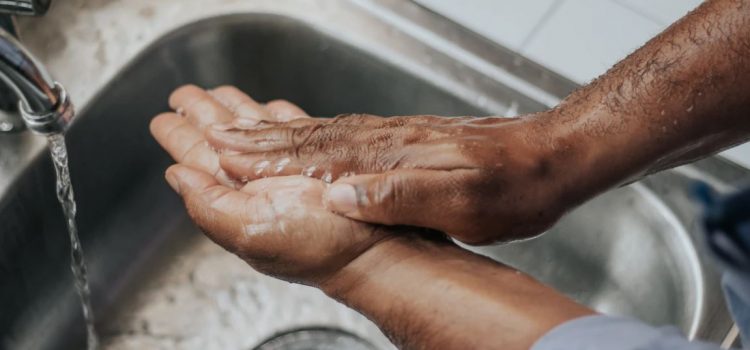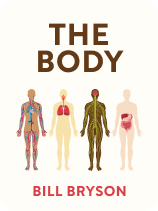

This article is an excerpt from the Shortform book guide to "The Body" by Bill Bryson. Shortform has the world's best summaries and analyses of books you should be reading.
Like this article? Sign up for a free trial here .
Why is it important to wash your hands? Is a handshake really more unhygienic than a kiss?
At any given time, there may be hundreds of microbes on your hands, ready to get you—or somebody else—sick. As it turns out, most people don’t wash their hands long enough to get rid of the viruses and bacteria.
Keep reading to learn about the importance of regular handwashing.
Health and Hygiene
In addition to what you feed your body, the microbes that you expose your body to can have a significant impact on how well your body works. Bryson explains that your body is inhabited by trillions of microorganisms from thousands of different species.
(Shortform note: As Bryson explains, your body is full of microbes. According to some estimates, there are actually more bacterial cells in your body than human cells.)
We can infer two main applications from Bryson’s explanation of viruses, bacteria, and how these pathogens can be transmitted from one person to another.
Wash Your Hands
First of all, Bryson’s discussion highlights the importance of washing your hands to avoid transferring pathogens from one person to another—especially if you work in the medical industry.
Why is it important to wash your hands? Bryson points out that most of the microbes that call your body home live inside you and don’t survive outside the body well enough for scientists to even study them effectively. However, a few hundred species of bacteria make their home on your skin, where they readily spread from one person to another by physical contact. Moreover, the particular species are different from person to person, and some species are harmless to one person but infectious to another.
(Shortform note: We can infer from other sources that the reason some microbes will harm one person but not another has to do with your immune system’s ability to recognize them. As your immune system develops, it accepts your unique population of microbes as part of your body. But if your immune system encounters foreign microbes, it attacks them. Since everyone has a slightly different set of microbes, any of the species that differ could potentially trigger an immune response. And sometimes the immune response manifests in symptoms such as fever or swelling.)
Similarly, Bryson points out that even when you are completely healthy, there are thousands of types of viruses inside your body, as well as in the surrounding environment. Less than 0.3% of all known viruses are disease-causing, but like bacteria, viruses often affect different people differently. For example, studies estimate that the Covid-19 virus is relatively harmless to at least 45% of the people who contract it, but it causes severe or even fatal illness in others.
(Shortform note: One reason that viruses affect different people differently is that viruses work by splicing themselves into a cell’s genetic code, and everyone has slightly different genes. Environmental factors and immune-system familiarity (as discussed above) also likely play a role, and scientists acknowledge that they don’t yet know all the factors that contribute to the differences.)
Furthermore, Bryson explains that you have to scrub your hands with soap and water for at least a whole minute to wash off viruses and bacteria. He estimates that, even in modern-day American hospitals, inadequate hand-washing leads to more than a million serious infections per year.
| How Much Hygiene Is Right for You? Some researchers assert that removing the native bacteria cultures from your hands (or other parts of your body) actually poses certain health risks. Specifically, scientists believe that certain types of microbes play an important role in your immune system’s development, such that systematically removing them increases your risk of autoimmune diseases. Bryson’s discussion of handwashing focuses mostly on medical personnel, where frequent, thorough handwashing is undeniably important: Any slight increase in your risk of getting an autoimmune disease is vastly outweighed by the risk of transferring an infectious disease from one patient to another. But what about the rest of us? If you don’t work in medicine, food service, or other venues with special sanitation requirements, perhaps removing the bacteria from your hands too frequently is actually counterproductive. |
Rethink Social Greetings
The second thing we can infer from Bryson’s discussion of disease transmission is that hand-shaking spreads microbes more effectively than most other types of greetings. Specifically, he says studies have shown that you’re actually more likely to pick up pathogens from someone (or transfer pathogens to them) if you shake their hand than if you kiss them.
In the West, shaking hands is a common greeting ritual in both business and personal relationships, while other cultures have historically used various customs such as kissing on the cheek or bowing to one another in this way. It might not be socially appropriate to go around kissing your coworkers, but if Bryson’s studies are correct, it may be time to rethink the methods you use to greet them.
(Shortform note: Since the start of the Covid-19 pandemic, many psychologists have taken an active interest in studying and even developing physical greetings that are less likely to spread viruses. One study concluded that the best alternative greeting to promote consisted of clasping your own hands together in front of you for the other person to see. They reached this conclusion after considering and subsequently dismissing alternatives such as bowing, elbow-rubbing, hand-waving, and foot-bumping.)

———End of Preview———
Like what you just read? Read the rest of the world's best book summary and analysis of Bill Bryson's "The Body" at Shortform .
Here's what you'll find in our full The Body summary :
- A whirlwind tour of the human body’s various systems
- Why your sense of smell is probably as good as your dog’s
- How hot peppers increase your life expectancy






